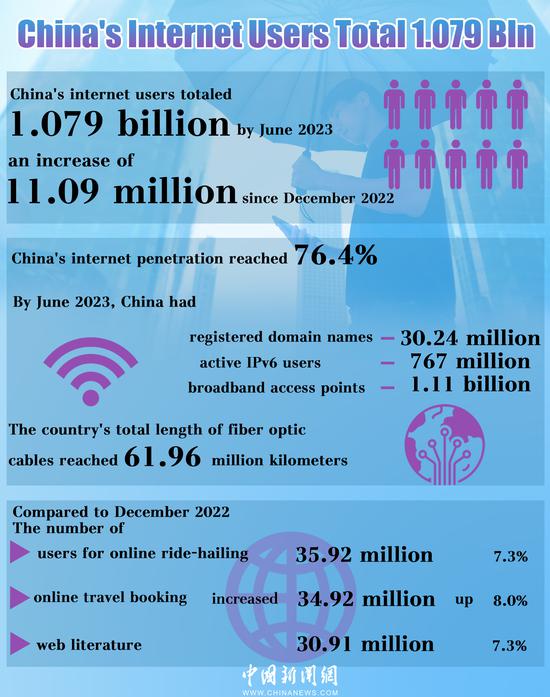Activities aimed at teaching public how to protect themselves while online
Great efforts should be made in education and innovation around cybersecurity to help the country strengthen its security system and governance capability, an official from China's top internet regulator said.
While stressing that cybersecurity has a profound impact on economic, political, cultural, social and military security, Zhuang Rongwen, head of the Cyberspace Administration of China, said that the authority will strongly support Fuzhou, capital of Fujian province, to create a base for national security talent and innovation.
He made the remark while attending the opening ceremony of this year's Cybersecurity Week, which was held in Fuzhou on Monday.
Themed "Cybersecurity for the People and by the People", the 2023 Cybersecurity Week will run across the country from Monday to Sunday. It is an annual event that enhances national awareness of cybersecurity and helps the public protect themselves.
In addition to the opening ceremony, a summit for the event as well as multiple major activities and 14 sub-forums, such as those on cloud computing, automotive data security and juvenile protection in cyberspace, are also scheduled to be held in Fuzhou this year.
Zhou Zuyi, Party chief of Fujian, emphasized that holding the event is of great significance for enhancing people's skills in preventing security risks and improving the work efficiency of cyberspace agencies.
He said at the opening ceremony that Fujian has continuously consolidated network security technologies, and actively helped integrate the development of cybersecurity education and technological industries.
"Fuzhou's step of building a leading digital city has also been accelerated, with more efforts in educating cybersecurity talent and improving cybersecurity protection capability," he said, while encouraging internet talent to start up businesses in Fujian.
Thanks to the weeklong activity, which was launched in 2014, as well as relevant security prevention knowledge introduced by authorities, lots of residents have realized the importance of protecting personal data and know-how to identify and keep away from online threats.
Feng Yi, a teacher from Wenzhou Business College in Zhejiang province, said that he usually shares cybersecurity-related laws and cases with his students, reminding them to be more careful while transferring money via online bank accounts.
He also expressed concerns on security problems caused by artificial intelligence and some other advanced technologies.
"Some people were found to have applied AI in fraud, so I'm thinking that how to avoid scammers manipulating such new technologies should be considered by lawmakers," he added.
Kong Yiying, a mother of two boys from Guangdong province, also said that anti-fraud tips provided by authorities have made her family subconsciously more vigilant while submitting personal information, and they've set up stronger passwords.
She welcomed internet platforms' measures to deal with cyberbullying, such as the establishment of prevention systems and reporting channels. But she added that she is looking forward to seeing the country solve the problem by rule of law.


















































 京公网安备 11010202009201号
京公网安备 11010202009201号